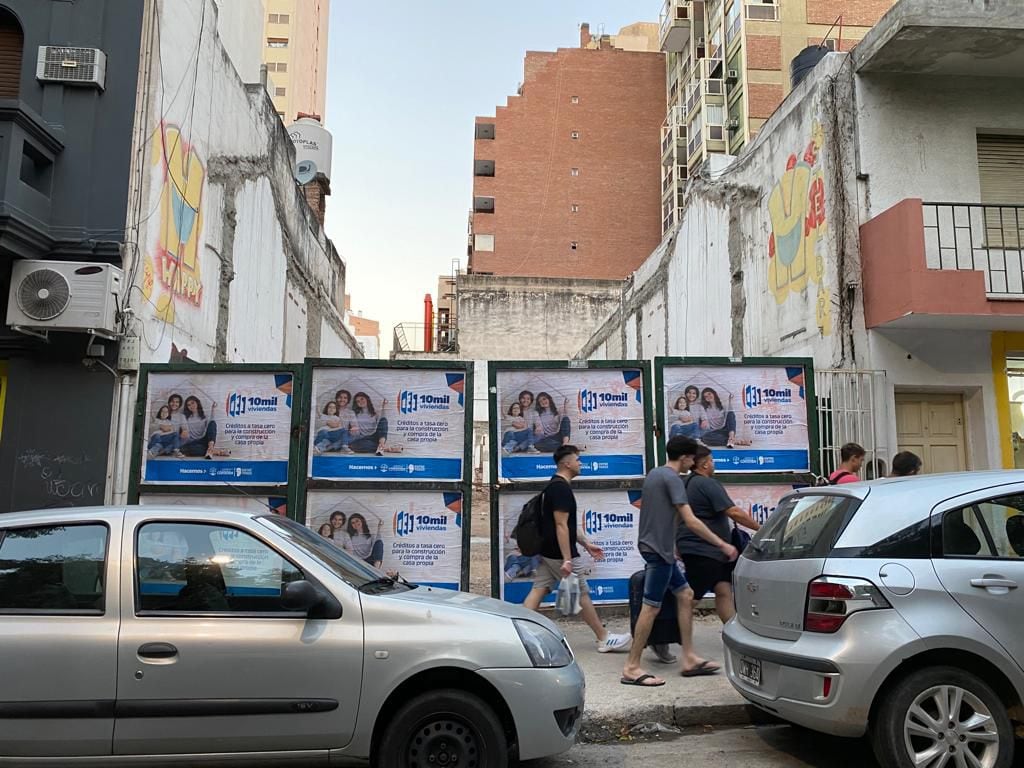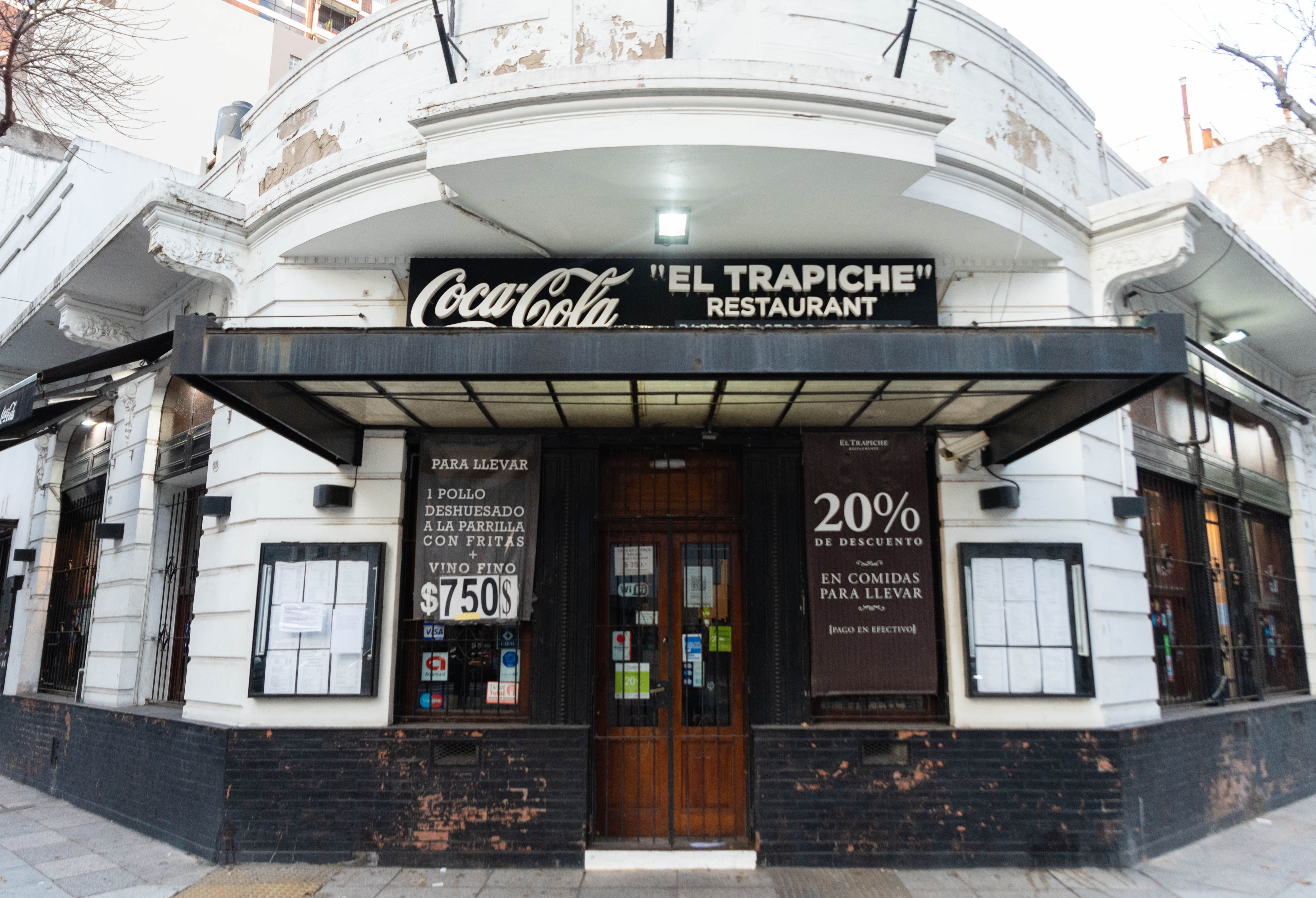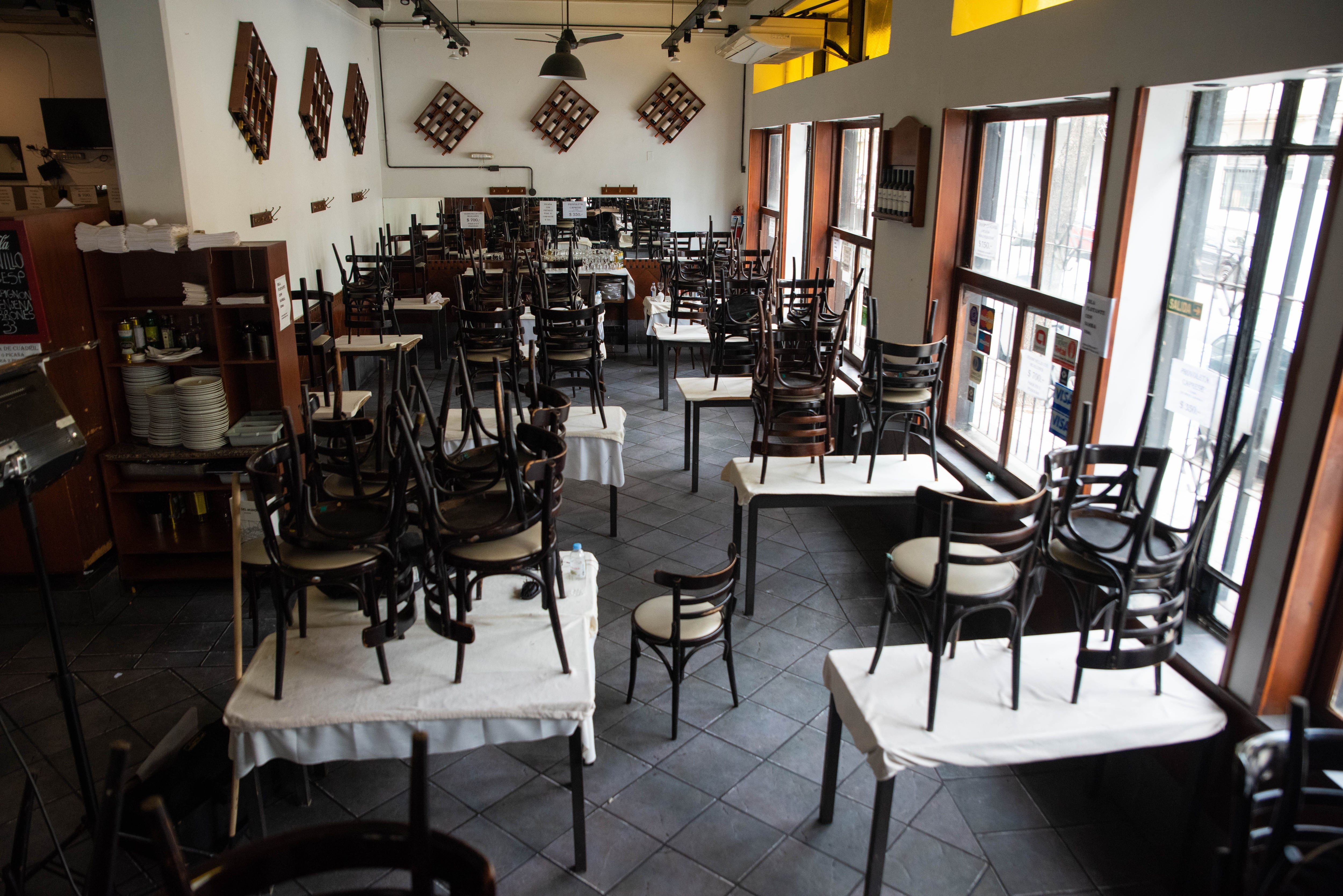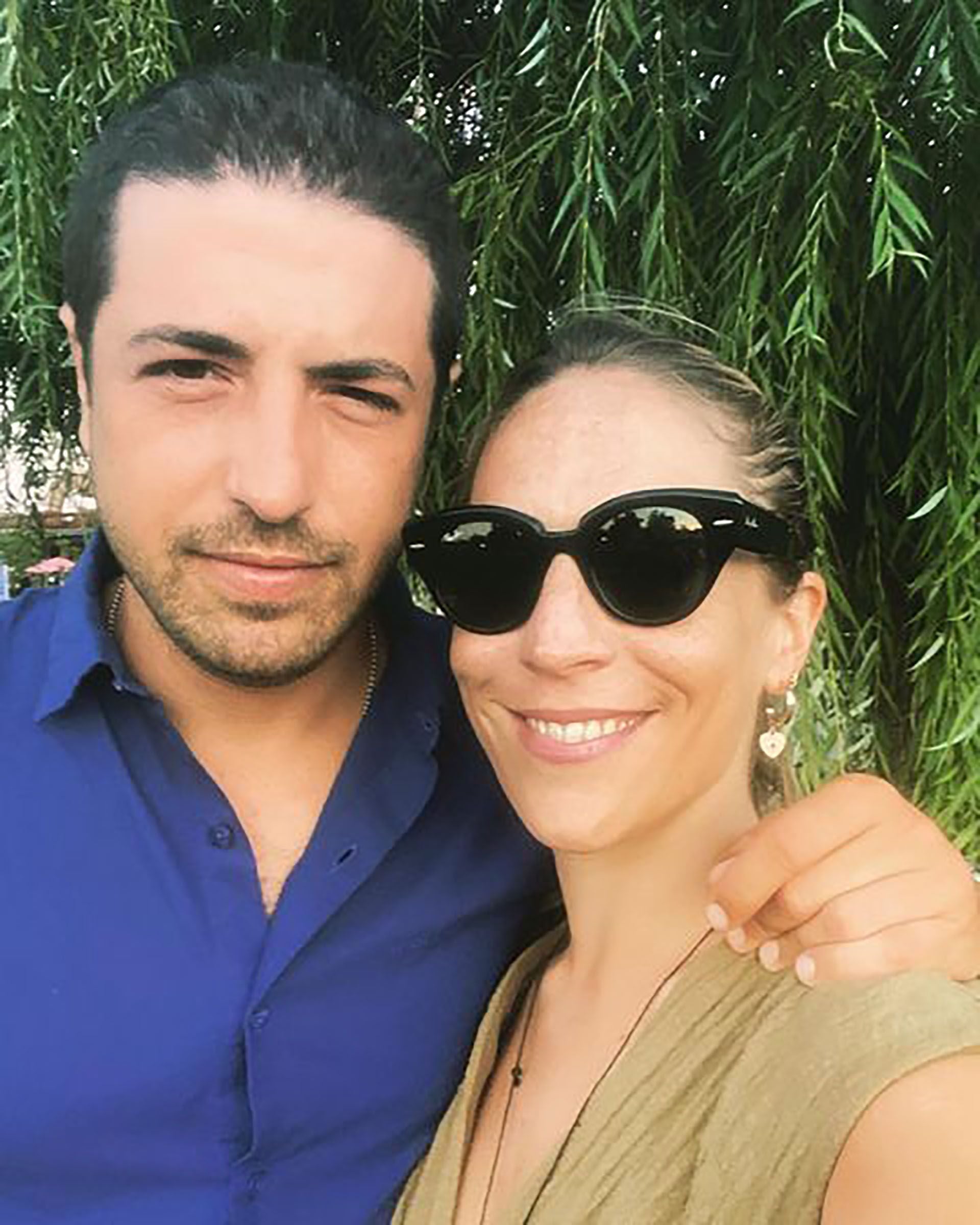
“Nobody can leave their residence, everyone has to stay at home,” President Alberto Fernández said sharply when he announced the start of Preventive and Compulsory Social Isolation (ASPO) two years ago. At that time, the total number of coronavirus infections amounted to 128 nationwide and terms such as “social distancing”, “essential workers” and “quarantine” were not part of everyday life. The vast majority of people did not even wear a mask when they had to go public, since its effectiveness was not yet proven and was not yet recommended by international health entities.
The measure to mitigate the spread of COVID-19 began to take effect from 00 on Friday, March 20 and, in principle, was to be extended until the 31st of that month. Everyone knows this: it lasted much longer and in the following days it became common to observe empty, deserted cities with much less movement than on a holiday; quiet streets where the presence of fumigators, security personnel and traffic agents in charge of controlling those who had the authorization could be distinguished to go out to work, those who were called “excepted” - another word that was immediately familiar - and who were engaged in one of the 24 activities classified as essential.
Thus began the “new normal” that changed everyone's lives. That of the members of the health system who fought hard against the pandemic and that of those who lost a loved one to COVID-19 and, in many cases, could not fire him. Those who fought to keep their business going in the face of the economic crisis and those who managed to find other ways to survive and continue working. That of those who postponed - or directly canceled - their dreams and that of those who found a better life, amidst so much negative impact. Below are four cases that reflect the impact of confinement.
“Here lie the remains of an Argentine SME”

For Gabriel González, quarantine meant the end of entrepreneurship, which was his source of income since April 1, 2012. He owned a hostel in the city of Córdoba, a place that grew to have 75 beds with breakfast included and that managed to position itself as a reference for visitors from all over the country and the world. It was called Happy Hostel and it allowed the entrepreneur to pay for his studies: “Thanks to this prosperous business I was able to receive myself as a Civil Engineer at the National University of Córdoba. In my senior year I won a scholarship and obtained a double degree in Italy.”
The project faced repeated economic fluctuations in the country. However, it did not resist the months of inactivity as a result of ASPO. González could no longer afford to rent the building and, three months after the quarantine began, he was forced to lower the blinds. He announced the definitive closure with a parade that read as follows: “QEPD Happy Hostel. Here lie the remains of an Argentine SME. He did not withstand 90 days of prohibition. Thank you politicians for doing this.”

In the following days, he summoned the four employees and together they began to dismantle the space. “I gave the kitchen to Rosa, who went from being a manager to putting on a chicken shop in her house, some beds for the other employees and selling the mattress garden that I had left in retail,” she said at the time. And feeling “anger and sadness”, he was convinced that his future was outside the country: “My rational part says that this far I came, Argentina is not ready for entrepreneurs”.

21 months after the farewell to Happy Hostel, González now has his life in Spain. He moved to Barcelona in October last year. He saved a little money that he used to pay the rent for a room and, as soon as he stepped on European soil, he immediately looked for work. He got it shortly after landing in a clothing store.
He currently has two jobs, since some time later he also got a job in civil engineering. On the other end of the phone, he says he doesn't regret the decision he made at all. On the contrary, he argues: “I threw 20 years in Argentina.”

“Argentina is a The Truman Show, it's all lies. It is a wonderful country, with a wonderful culture, but it is orchestrated so that people have a hard time. The system is bad and it will never change. And people are psychologically affected. If the energy that each one puts every day into their projects were put into a normal country, they would have a better quality of life. Elsewhere the effort is worth. But not in Argentina,” the engineer analyzes.
“Sometimes, there are days when I appreciate the final thrust that quarantine gave the hostel. If it hadn't happened, I might still be dying in the struggle to keep it. And life is not to survive, to suffer from it. We must seek to live quietly”, he concludes.
The farewell to a porteño classic

At the end of 2020, the Confederation of Argentine Medium-sized Enterprises (CAME) published a nationwide survey on the impact of the pandemic and quarantine on consumption and sales. The report was devastating: it was estimated that, until then, 90,700 retail stores had closed and there were an average of 9 empty stores per block nationwide. One of the hardest hit sectors was that of gastronomy and hospitality: according to the Gastronomic Hotel Business Federation (FEHGRA), some 8,000 establishments disappeared that year.
One of the victims was “El Trapiche”, a traditional restaurant that had to say goodbye to its customers after 31 years of uninterrupted work in the Palermo neighborhood.

Opened in 1989 and located on the corner of Paraguay and Humboldt, this canteen was famous for the taste and abundance of its dishes, with a cuisine that combined typical national recipes, with other Spanish and Italian recipes. Among the delicacies were potato tortillas, rabas, homemade pastas. The star was the entrana with roasted bell pepper. The owners say that El Trapiche went through a period of splendour during the 90s and until 2008. In its long heyday, it had a capacity for 400 dishes and received many illustrious visits. From Diego Maradona, Ricardo Bochini and other established athletes to Hollywood figures such as Willem Dafoe and Adrien Brody, to politicians, musicians, writers and journalists, among others.
Miguel Suárez, son of one of the founders, synthesized the secret of success in the combination of good merchandise, good service and large, well-prepared portions. “There was the key. Our customers were always fantastic, they always came back. Now that we are closed, our customers, their children, their parents, the grandchildren write to us. We have ended up with great relationships with everyone and it makes us very happy,” Miguel remarked shortly after the farewell.

“Ladies and gentlemen, from a family account, we share that we have concluded a cycle of more than 30 years”, reads at the beginning of the message that publicly announced the end of El Trapiche on Instagram, on June 17, 2020. It was the last publication of an account that has since remained inactive.
At the time it seemed like an irreversible decision, but was it the final goodbye? Quite possibly not: from the Suárez family they let it transcend that, thinking ahead, they intend to return to the gastronomic sector, although not immediately.
“Mano Libre”
The pandemic imposed new social habits. For example, disinfecting your hands every now and then with soap or alcohol gel became a habit. More than ever, people began to pay attention to everything they touched with their hands. Thus, other daily necessities were created.
Martín Rodríguez Riou is an industrial engineer and owner of a company in Tigre. It is called Bremet and is dedicated to the injection of non-ferrous metals. Interpreting the context, a few weeks after the lockdown began, he reinvented his production with two objectives: to continue working and to look for elements that contribute to the reduction of infections.
With these premises he created an aluminum pedal for doors. This element allows them to be opened with the foot and thus avoid touching the handle. It is an adaptable object, 100% Argentine and made from recycled aluminum. It can be applied to any type of door, although it is designed for places of high traffic such as gas stations, restaurants and shopping centers, explained Rodríguez Riou.

The idea came to him after watching a video on YouTube of a similar article that was used in the United States. He was not the only one: he also developed, under the Mano Libre brand, a plastic key ring to touch buttons in elevators or ATMs, instead of doing it directly with his fingers.
Rodríguez Riou stressed that “the spirit of the proposal was to continue to maintain the employees' source of work” within the framework of a stopped activity, “but at the same time to prevent the spread of COVID-19.” The initiative also had a solidarity purpose: for each product sold, another product was donated just like it to hospitals or public good institutions.
After the time of restrictions, Bremet returned to the production of parts for cars, motorcycles and electrical appliances, its main activity. “The pedals and key rings were temporarily successful. I was the first to take them to the court and then there were others who dedicated themselves to making them cheaper with other methods, so I stopped selling them,” the owner reviewed in dialogue with Infobae.

Rodríguez Riou also said that he had some pedals and key rings left in stock. He said he is willing to give them away or sell them at a symbolic price of $1 each. “For me, it is obsolete merchandise,” explained the engineer and clarified that the remainder will only be donated in block, to a company or entity that needs it, and not by retail quantity. The way to contact him is through the website (www.bremetsa.com.ar) or the cell phone +54 9 11 2647-1918.
Love in times of quarantine

At the time of ASPO there were also those who found the way to love. Despite having to spend more hours at home than usual; despite the fact that bars, clubs, gyms or other common meeting spaces were kept closed; even though, at one time, leisure outings were enabled according to the numerical termination of the DNI.
Even in this context there was room to fall in love. It happened, for example, to Marcela D'Ambrosio, who was on vacation in Pinamar when the quarantine was decreed. There she reunited with her teenage boyfriend after 30 years, they re-entered into a relationship and chose to stay with him on the Atlantic Coast. Or Carolina Rabasa Rucki, who met Bryan Boyle a few days before confinement while in London, and had to return on a returnee flight, and then continue the link in a virtual way. Also to Clara Giménez Zapiola (33) and Francisco Toruella (36).
Clara and Francisco teamed up through a dating app, Bumble. Disbelieved and a little disillusioned by other relationships that had not prospered, she had registered as a fun way. “I used it to hang out, I watched, I liked it, or I didn't... and it was still long,” he said. Their paths crossed at the end of April 2020. “We made a match, and we started talking. The connection was instant, so we decided to make a video call,” she recalled.

The relationship continued with texts and calls until one day the woman asked her to go for a walk with her dog around the block of her neighborhood: “I put on my mask, I grabbed two cans of beer and we walked without stopping talking for about 40 minutes. On the way, a neighbor decided to do a show on the balcony, so we even had a free recital. This was our first date.”
The days passed and they juggled to see each other. “Not everything was open, and the possibilities of meeting were scarce, I made him come to the apartment always wearing a mask and keeping the care... little by little I realized that I was falling in love,” admits Clara.
The first kiss -” a little piquito” - came on May 15. “We're home, he gave me a hug and we kissed. It was easy to be with him. Being an architect like me, we shared time in my home workshop, we talked about work... he even got to paint our first dates.”
The pandemic accelerated the couple's times. In August they moved together to a house in Pilar and later to Nuñez, where she set up her art studio. Since then the relationship has always progressed: they went on trips together and spent the holidays with the family. “We are a consolidated couple with plans for the future,” Clara said.
KEEP READING:
Últimas Noticias
Debanhi Escobar: they secured the motel where she was found lifeless in a cistern
Members of the Specialized Prosecutor's Office in Nuevo León secured the Nueva Castilla Motel as part of the investigations into the case

The oldest person in the world died at the age of 119
Kane Tanaka lived in Japan. She was born six months earlier than George Orwell, the same year that the Wright brothers first flew, and Marie Curie became the first woman to win a Nobel Prize

Macabre find in CDMX: they left a body bagged and tied in a taxi
The body was left in the back seats of the car. It was covered with black bags and tied with industrial tape
The eagles of America will face Manchester City in a duel of legends. Here are the details
The top Mexican football champion will play a match with Pep Guardiola's squad in the Lone Star Cup

Why is it good to bring dogs out to know the world when they are puppies
A so-called protection against the spread of diseases threatens the integral development of dogs




